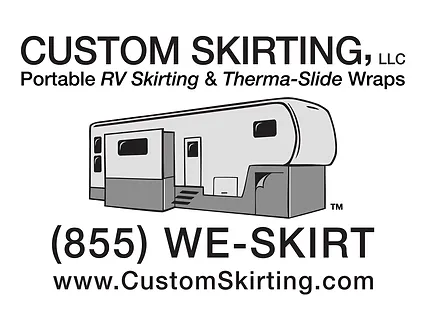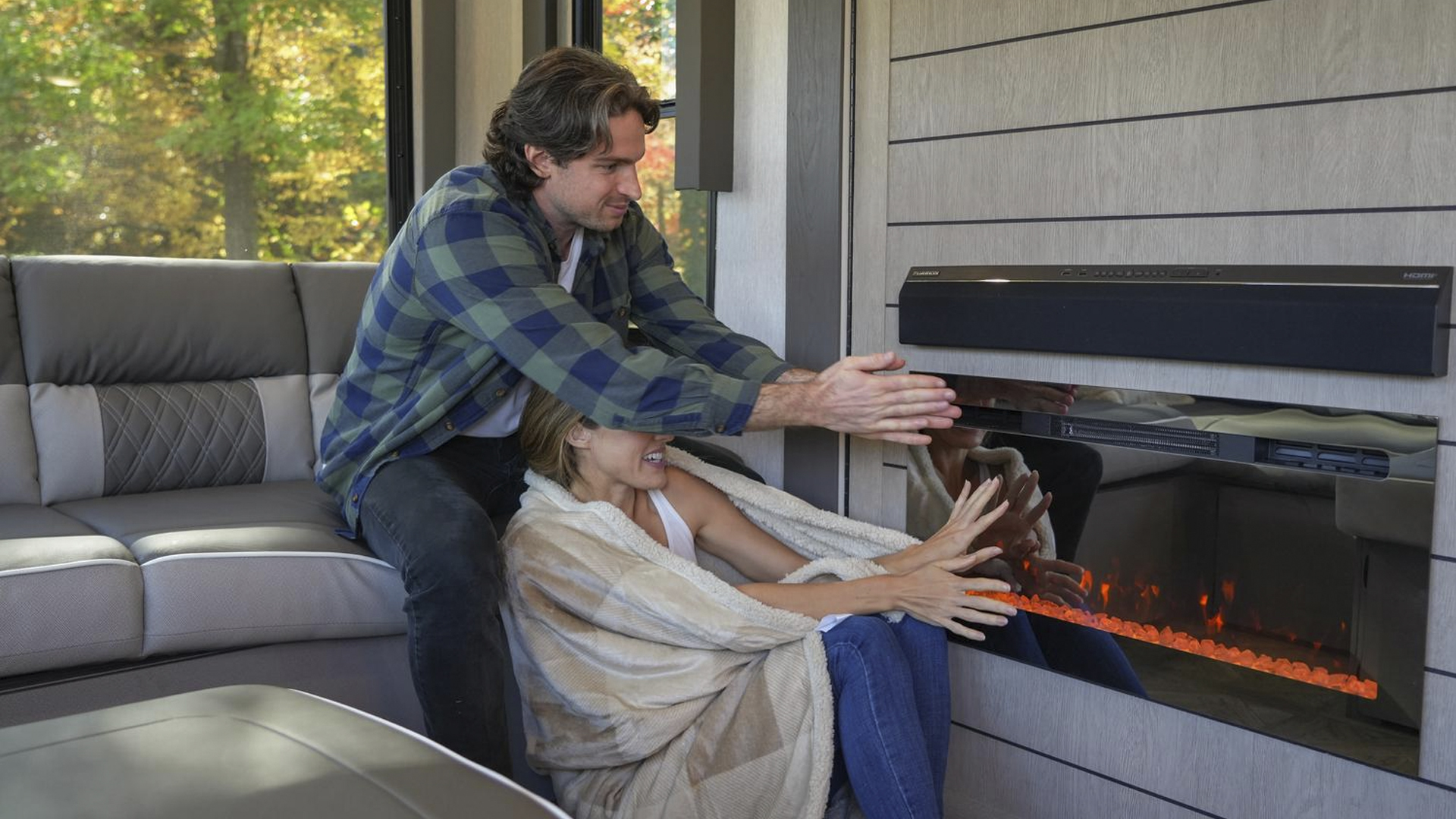
Top RV Heating Systems: Keeping Warm on the Road
Table of contents
Keeping warm while traveling in your RV is essential, especially during cold-weather trips. A reliable RV heating system can make all the difference, ensuring comfort and protection from the elements. RV heating systems are designed specifically for the unique challenges of heating a small, mobile living space. With various types available, from built-in heaters to portable options, understanding your choices can help you find the best fit for your RV. This guide covers essential information on different RV heating systems, energy efficiency, maintenance, heaters for campers, and tips on how to heat a camper effectively.
Types of RV Heating Systems
Factory-Fitted Parking Heaters
Many RVs come equipped with built-in heating systems, often called factory-fitted or parking heaters. These systems work by using diesel, electric, or propane to generate heat. Factory-fitted RV heating systems are known for being integrated into the RV’s structure, distributing warmth effectively throughout the vehicle. They are often powered by the same fuel source as the RV’s engine, making them convenient and energy-efficient for long-term travel.
Benefits of Factory-Fitted Parking Heaters
- Integrated Design: Because these systems are built-in, they efficiently distribute warm air to the entire RV.
- Fuel Efficiency: Running on diesel, propane, or electricity, these heaters offer flexible power options, helping save on energy costs.
- Low Condensation: Factory-fitted heaters are designed to minimize condensation inside the RV, which can be a common problem in colder weather.
Combi Heaters
Combi heaters are dual-purpose systems that provide both hot air for heating and hot water for showering and cooking. These versatile systems can be powered by either propane or electricity, making them a popular choice among RVers looking to save space and improve efficiency.
Benefits of Combi Heaters
- Space-Saving: Since combi heaters serve dual purposes, they reduce the need for additional appliances.
- Energy Efficiency: Combi heaters often consume less fuel or electricity than running separate heaters and water heaters.
- Brand Reliability: Brands like Truma and Alde are popular in the RV community for their durable and efficient combi heater models.
Portable Heating Options
If your RV doesn’t have a built-in heating system or you’re looking for supplemental warmth, portable heaters for campers can be a practical choice. Below are some popular types of portable heaters and their benefits.
Blown-Air Systems
Blown-air systems work by circulating air through a heating element and distributing warm air throughout the RV. They’re lightweight and easy to transport, making them a favorite among RV owners.
- Quick Heat-Up Time: Blown-air systems warm up the RV space quickly, ideal for cold mornings.
- Compact Design: These systems are typically small and easy to store when not in use.
- Downside: They can be noisy and may not be suitable for continuous use.
Oil-Filled Radiators
Oil-filled radiators are electric heaters that warm up a liquid inside the radiator, which then radiates heat. These are excellent for maintaining a stable temperature, though they take longer to warm up.
- Safe and Consistent Heat: Oil-filled radiators offer a safe, steady heat source with low surface temperatures.
- Energy-Efficient: Once warm, these radiators continue to emit heat even after being turned off, making them energy-efficient.
- Downside: They can be heavy and are best suited for stationary use.
Halogen Heaters
Halogen heaters use radiant heat to warm people and objects directly, rather than heating the air around them. This targeted heating makes them efficient in smaller spaces.
- Quick Warmth: Halogen heaters are effective for immediate heat in small, enclosed spaces.
- Lightweight and Portable: Easy to move and store, they are great for quick, on-demand heating.
- Downside: Limited in heating large spaces and often require careful placement for safety.
Fan Heaters
Fan heaters are among the most popular portable heaters for campers due to their compact size and affordability. They use a fan to blow air over a heating element, rapidly distributing heat.
- Compact and Lightweight: Ideal for small RV spaces, fan heaters are easy to store and transport.
- Instant Warmth: Heats up quickly, providing fast relief from the cold.
- Downside: Can be noisy and less efficient for continuous heating.
Choosing the Right Heating System for Your RV
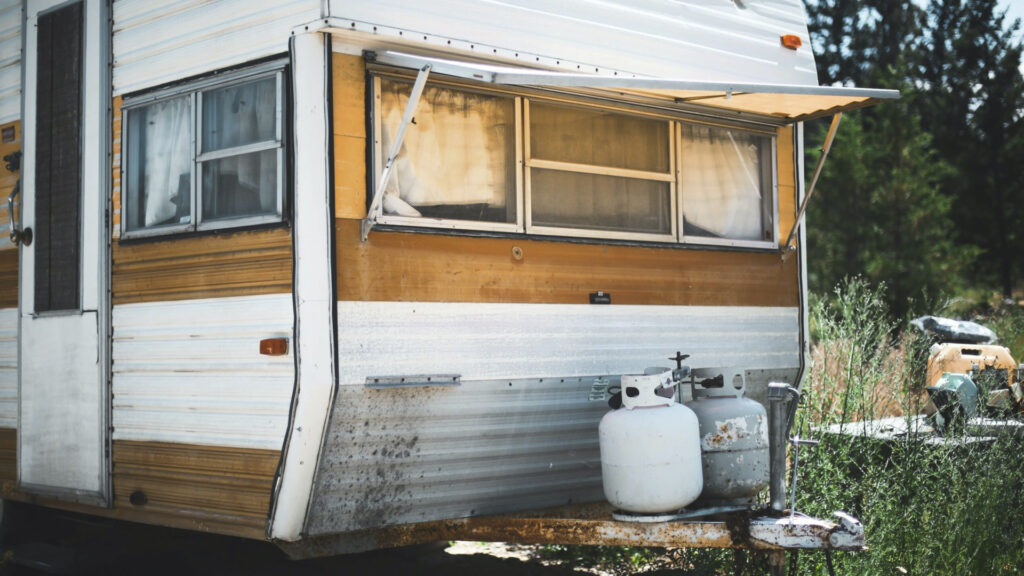
When selecting an RV heating system, consider several factors to find the best fit for your needs.
Size of Your RV
Larger RVs may require more powerful heating systems, while smaller RVs might need compact, efficient heaters. Make sure to choose a system that suits the size and layout of your RV.
Power Source
Some RV heating systems rely on propane, others on diesel, and others on electricity. Consider your power access when choosing a heating system. If you frequently boondock, a propane-powered system might be best, while those with consistent access to electrical hookups might prefer electric heaters.
Cost
Different heaters for campers come with varying price points, both in terms of upfront cost and ongoing fuel expenses. It’s essential to weigh initial investment against long-term operational costs.
Energy Efficiency and Cost Considerations
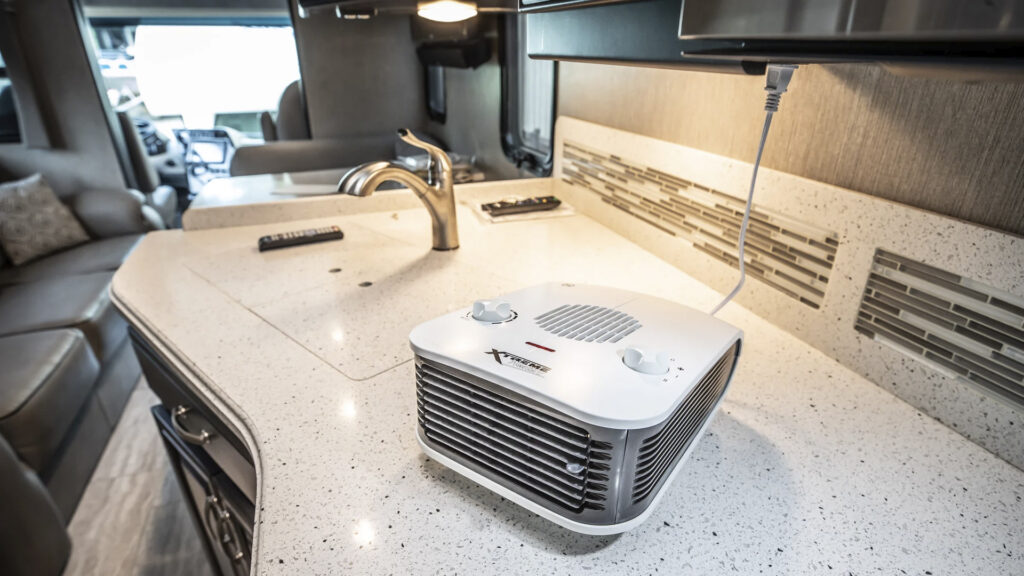
The type of fuel used in your RV heating system can significantly impact energy efficiency and costs. If you’re wondering how to heat a camper efficiently, here’s a breakdown of common options:
- Propane: Ideal for off-grid RVing, propane is both affordable and efficient. However, it requires proper ventilation.
- Electricity: Electric heaters are low-maintenance and safe, though they depend on hookups for extended use.
- Diesel: Diesel heating systems offer high fuel efficiency and are ideal for long-term, cold-weather trips.
Maximize efficiency by regularly checking for insulation leaks and installing a smart thermostat to maintain stable temperatures. Consider how to heat a camper effectively by choosing the best heater for under RV skirting to further insulate your vehicle.
Maintenance and Safety
Keeping your RV heating system in good working order is essential for safe, efficient operation.
- Annual Servicing: Schedule annual maintenance with a registered auto-electrician to ensure safe and optimal performance.
- Carbon Monoxide Detectors: For any propane or diesel system, installing a CO detector is critical for safe use.
- Fire Safety: Keep portable heaters away from flammable objects and install smoke detectors to alert you in case of any issues.
Tips for Staying Warm in Your RV
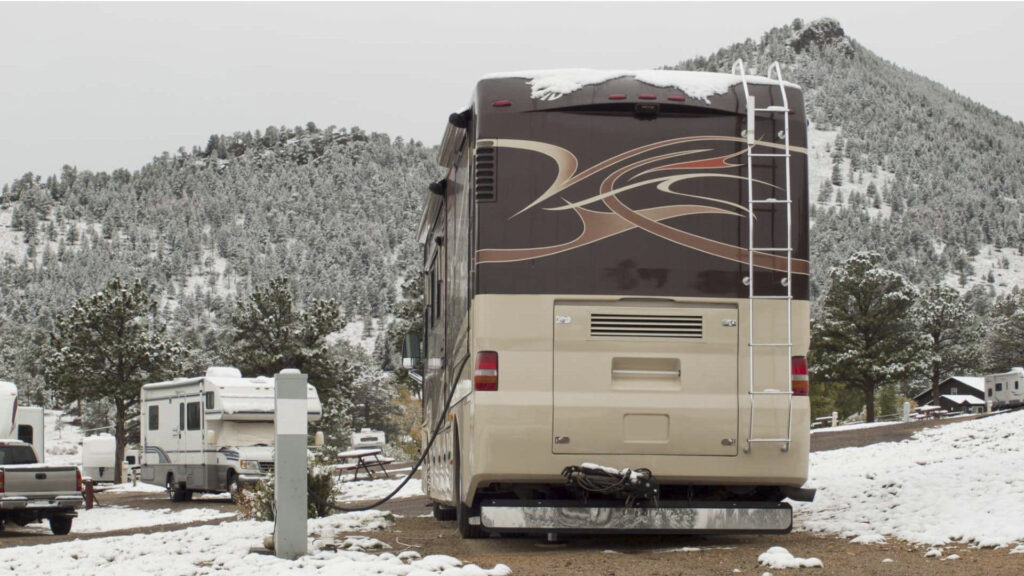
Heating isn’t the only way to stay warm in your RV. Here are some additional tips:
- Thermal Curtains: Insulated curtains can help retain heat by blocking cold air.
- Draft Stoppers: Sealing gaps around doors and windows prevents heat loss.
- Winterize Your RV: Adding RV skirting around the base can help trap heat and protect plumbing from freezing.
- Layered Clothing and Bedding: Dressing in layers and using thermal blankets will keep you warm at night, reducing reliance on heating systems.
Choosing the right RV heating system is essential for a comfortable, enjoyable experience on the road. Whether you opt for a built-in heater, combi heater, or a portable unit, understanding how to heat a camper and selecting the right system for your RV will keep you warm and safe on all your adventures. From factory-fitted options to the best heater for under RV applications, you’ll find an RV heating solution that fits your needs.
Maximize Warmth & Efficiency with Custom RV Skirting
Want to keep your RV warm and energy-efficient? Pairing your heating system with custom skirting is the ultimate way to stay comfortable on the road. Custom Skirting insulates your RV’s underbelly, reducing heat loss and preventing cold air from seeping in, making your heating system work less to maintain the perfect temperature. Plus, it protects critical components like water lines and tanks from freezing, keeping your entire RV system running smoothly—even in harsh winter weather.
Don’t compromise on warmth or quality. With our custom-fit, “No-Snap, No-Gap” channel system, experience the nation’s #1 RV skirting solution designed to protect and insulate wherever you go. Book your Custom Skirting today for a cozier, more efficient RV experience!
